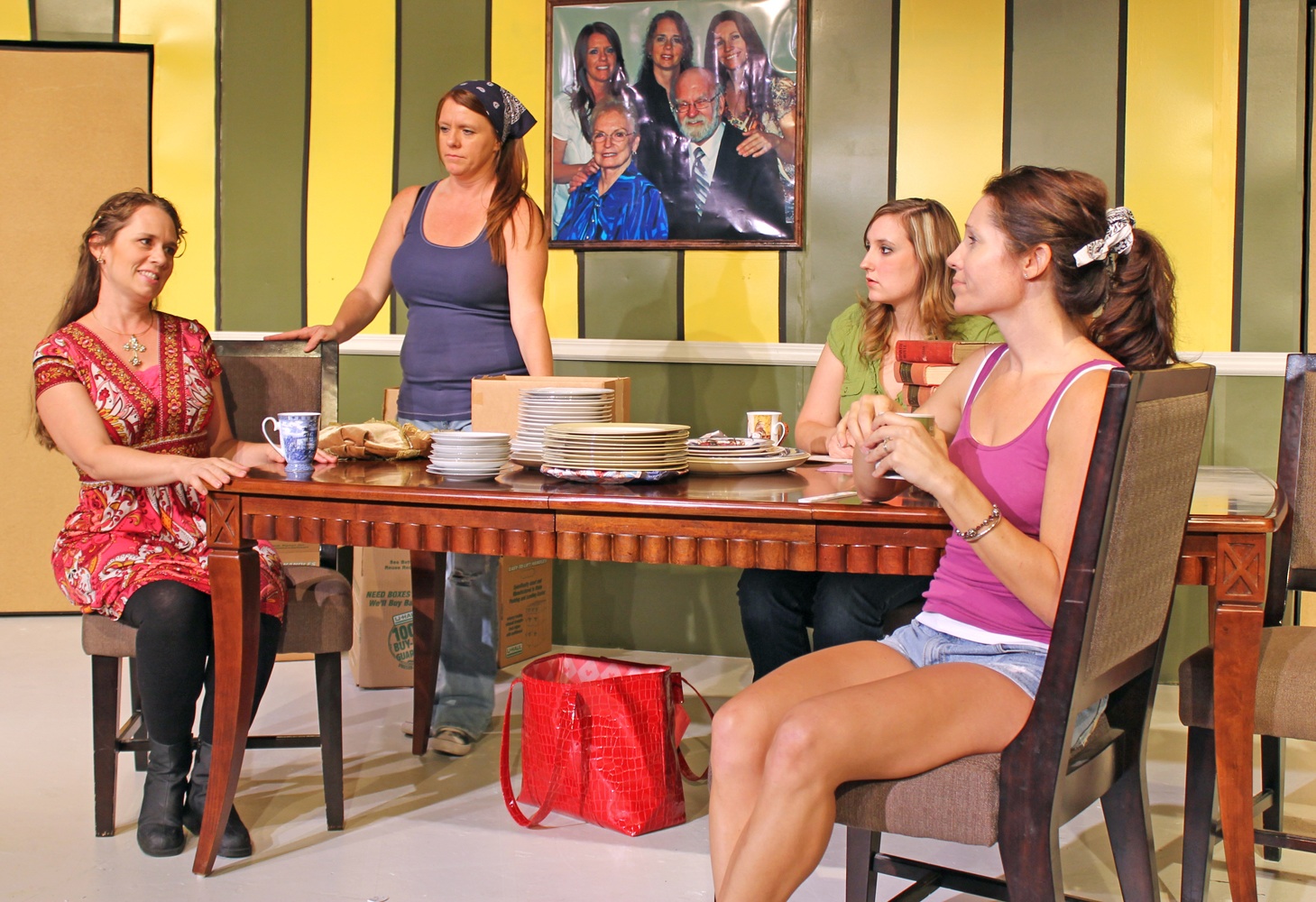So Damned Heavenly Bound
The Elephant Theatre
Through Sept. 10
1 paw
When a 20-minute one-act play is set in the aftermath of a father’s death, there is a significant amount of emotional baggage to shove into a small time frame.
“So Damned Heavenly Bound,” the first play of a double feature at The Elephant Theatre which also included “You Make Me Physically Ill”, attempts to solve that issue by foregoing details about the father’s death and placing the emotional burden on four women: three of the man’s daughters and one his granddaughters.
The daughters, Liz (Malesa Farris), and Peggy (Sundee Martineau), as well as Liz’s daughter Lisa (Angela Poncetta), have spent the whole afternoon and evening preparing for the following day’s funeral. They are left to sort through old antiques and fine china that used to belong to the erstwhile patriarch. The three women face this daunting task without the assistance of Chrissy (Rebecca Erwin), the one daughter who remained physically and emotionally distant from the father as the man was dying.
When Chrissy finally arrives, having just finished celebrating her daughter’s birthday in Las Vegas, tensions simmer. When the other sisters point out Chrissy’s nonchalance toward the death of her father, Chrissy defends herself with a series of religious non sequiturs that only intensify the ire of the rest of the family.
Where “So Damned Heavenly Bound” falters, however, is in its lack of empathy for the grieving sisters. The audience discovers that the three women are handling the situation in different ways, but none of those coping mechanisms indicate any significant underlying feelings of anguish. What should come across as a volcanic eruption of confused rage ends up carrying a far less emotionally recognizable punch.
The audience is meant to believe that these women are under physical duress as a result of the loss of their father. But, as the cartoonish third sister enters the fold, the women exert the general fatigue expected from someone after a trip to the gym. And, to be sure, Chrissy is an unlikeable character. But she seems to be written that way simply for the sake of being unlikeable, not as a result of a nuanced character flaw.
Not all grief has to be hysterical. But here, the understated reactions to the death of a father don’t come across as purposeful, but merely empty.
